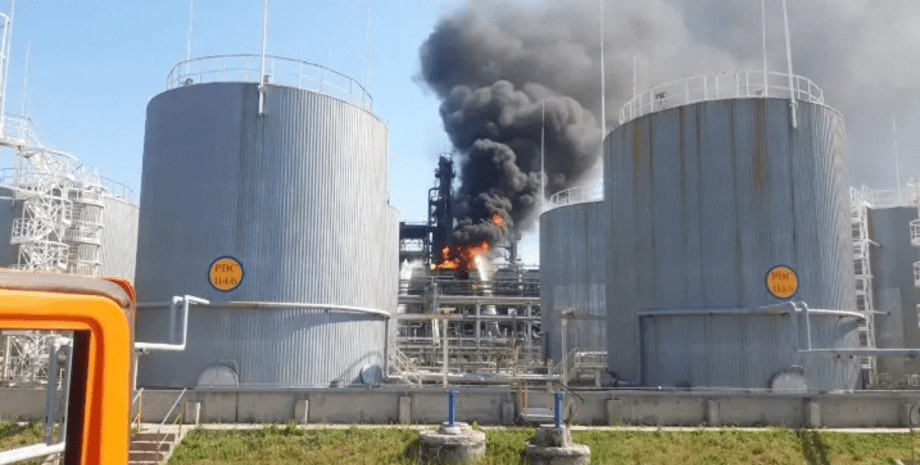
 By Natali Moss
By Natali Moss
The agency referred to the assessment of the US Department of Defense Intelligence Office, which was summarized in the report published on Thursday, May 16, by the General Inspector, which supervises with the help of the United States of Ukraine. According to the report, the loss of part of the Russian oil refining capacity led to an increase in domestic prices by 20% -30% by mid-March and provoked export stop to focus on satisfying domestic demand.
However, they had a minimal impact on electricity production. "To mitigate the impact of these blows, Russia has banned gasoline exports for six months, starting in March, began to import petroleum products from Belarus, which she planned to import from Kazakhstan, and gave priority to the shipment of petroleum products by Russian railways as opposed to other types of transport," Reports.
Ukraine, who is entrusted to foreign military and economic assistance in the fight against Russia, led by the United States, is increasingly aggressively attacking targets in the Russian territory. Although attacks on oil refineries aim to exhaust fuel and export revenues for the Armed Forces Dictator Vladimir Putin, the United States criticizes them as creating a risk for global oil prices.
Although the attacks are still ongoing, the analysis of the reconnaissance management of the Pentagon covers only the two-month period-from the first strike on January 21 at the Novatek PJSC plant in Ust-Luz, to an attack on March 24 on a power plant in Novocherkassk.
Attacks on energy facilities "led to minor interruptions in the power supply of the Russian military and civilian population", because "Russia has a powerful generating capacity - the third largest in the world - and a high degree of reservation on its network. " The report also states that the Armed Forces of the Armed Forces on the Black Sea Fleet of Russia with the use of unmanned sea drones "changed Russian naval operations".
Russia's Black Sea Fleet began to avoid the Ukrainian coast and relocated some ships from its main base in the occupied Sevastopol in Crimea. It is noted that this rating and data are contained in the last quarterly report of the Pentagon Inspector Robert Storch about US military and civilian assistance to Ukraine. We will remind, in the morning on May 17, two drones attacked an oil refining plant in Tuapse of the Krasnodar region of the Russian Federation, resulting in a fire in the plant.










All rights reserved IN-Ukraine.info - 2022